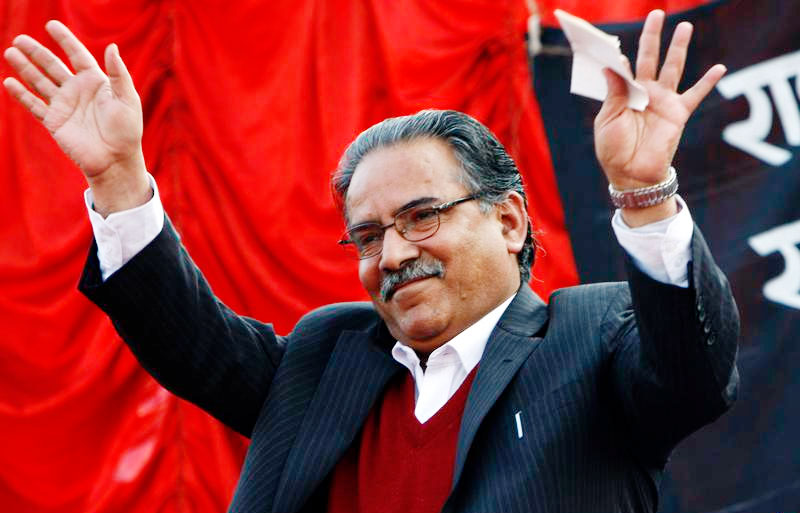In the 2008 elections, the Maoists won the most seats in the legislature, and Dahal was appointed prime minister.
Nepal’s prime minister postponed his first trip outside to Qatar due to certain “important political engagements” at home, according to officials.
Pushpa Kamal Dahal was due to take off on his first official overseas travel since taking office two months ago to take part in the Fifth Conference of the Least Developed Countries (LDCs).
However, looming threats of instability to his coalition government ahead of the presidential election has forced a change in schedule.
“The Prime Minister’s visit to Qatar to attend the Fifth Conference of the Least Developed Countries (LDCs) has been cancelled due to his important political engagements at home,” Prachanda’s Media Coordinator Surya Kiran Sharma told PTI on Monday.
Earlier on Sunday, the foreign ministry revealed that Dahal would travel to the Gulf country, however the official’s adviser revealed that the prime minister opted against travelling abroad due to the upcoming 9 March presidential election.
Dahal meanwhile requested Nepal’s Foreign Minister Bimala Rai Paudyal to postpone her trip just hours before she was due to fly to Geneva for a high-level meeting of the United Nations Human Rights Council.
The development comes against the backdrop of the formation of a new coalition government in Kathmandu that is being formed without the involvement of the Communist Party of Nepal-Unified Marxist–Leninist (CPN-UML). Notably, it also comes ahead of the March 9 presidential election, reports said.
Eight political parties have made the decision to back senior Nepali Congress leader Ramchandra Poudyal for the position of head of state during the election, including the CPN-Maoist Centre, which is led by Dahal.
On December 26, 2022, the 68-year-old Maoist leader Dahal was sworn in as prime minister for the third time after abruptly leaving the pre-election alliance formed by the Nepali Congress and uniting with the opposition leader Oli.
However, no party received a majority in the November parliamentary elections, which resulted in the formation of a coalition government led by Dahal.
His Maoist party joined a peace process supported by the United Nations and mainstream politics in 2006, ending a decade-long armed rebellion that resulted in the deaths of more than 17,000 people. Since then, he has held office three times.
In the 2008 elections, the Maoists won the most seats in the legislature, and Dahal was appointed prime minister.
Nepal’s 239-year monarchy ended in 2008 to make the country a republic. Since then, there have been 11 different governments.
Investors are frightened by the political unrest, which has slowed the expansion of the $40 billion economy.
